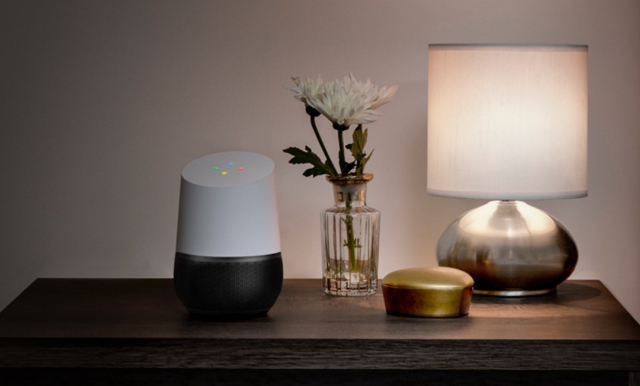Google is focusing on advances in artificial intelligence as a competitive advantage. Its new Google assistant is positioned as the company’s latest iteration of search, and Google is promoting a variety of products based on machine learning that face competing products. Google Home will compete with Amazon Echo, while messaging app Allo will take on Facebook’s Messenger and WhatsApp, and Snapchat. With regard to virtual assistants, Google is going against versions from Apple, Amazon, Facebook and Microsoft.
The Wall Street Journal reports that Google says its assistant will learn users’ preferences to predict what they want. “We want users to have an ongoing two-way dialogue with Google,” said chief executive Sundar Pichai. “We think of it as building each user their own individual Google.”
Google plans to incorporate the technology into Allo, which will “use artificial intelligence to analyze text messages and photos to suggest replies” and allow users to “request services, like booking movie tickets.”
With machine learning, says Pichai, Google’s software “learned how to recognize eye disease in scans.” “I believe we are at a seminal moment,” he said. “Things previously thought to be impossible may in fact be possible.”
Forrester Research analyst Julie Ask is a bit more skeptical. “We haven’t yet seen the true breakthrough experiences that… will make conversation- or bot-based services a consumer preference over individual apps,” she said.
Google also revealed its next version of Android has more than 250 new features, including enhanced security, a split-screen mode and the ability to change emojis skin color, as well as “perform faster across a wide range of phones.”
According to Wired, Allo, which will run on both Android and Apple phones, shines in that “it lets you interact with that centerpiece of Internet life: the Google search engine.” Allo allows the user to chat and use the search engine simultaneously, allowing the user to call up and share documents and images relevant to the conversation.
Google director of engineering Erik Kay says the vision is to bring all the apps to your online conversations, “via a Google-supplied layer of artificial intelligence.” The assistant in Allo will eventually roll out into other devices, including Google Home (pictured above).
The New York Times describes Google Home, a household device the size of a grapefruit that is activated by voice, as getting “got top billing” during Pichai’s two-hour keynote address at the I/O developer conference this week. Pichai credited Amazon for “creating a lot of excitement in this space,” as well as selling millions of Echo devices for about $180 each.
Google Home is not simply an effort to compete with Echo but to draw consumers away from the Amazon ecosystem and into Google’s. “It will let anyone in the family, kids or adults, have a conversation with Google,” explained Mario Queiroz, Google executive in charge of Home.
“The big tech companies are the new middlemen of commerce and communication,” says NYT, although it also points out that, “who or what is powering the agent’s opinions, and how much the consumer can trust it, are among many things still to be worked out.”


No Comments Yet
You can be the first to comment!
Sorry, comments for this entry are closed at this time.